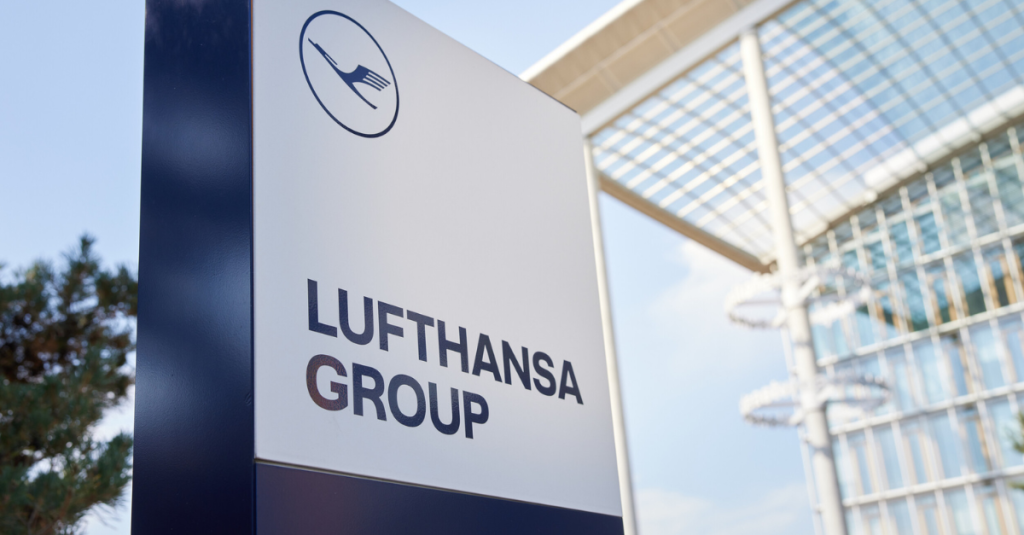Lufthansa Group has announced a significant restructuring initiative following a reported loss of €265 million in the first half of 2024.
Despite a rise in passenger numbers and revenue, the group struggled with operational inefficiencies and increased costs.
Financial Performance Analysis
Lufthansa Group recorded a substantial loss of €265 million for the first six months, despite a 7% rise in revenue to €10 billion during April to June. This loss contrasts sharply with a €414 million profit from the same period the previous year. The group’s inability to turn increased revenue into profit highlights underlying operational and strategic challenges.
The airline group transported over 60 million passengers in the first half of 2024, marking a 10% increase compared to the previous year. However, this achievement was overshadowed by significant financial hurdles. Revenue growth did not translate to profitability, reflecting the complexity of airline management and the impact of external factors such as strikes and delivery delays.
Impact of Market Conditions
According to Lufthansa CEO Carsten Spohr, although global demand for air travel remains strong, increased capacity, normalising airfares, and rising costs necessitated an adjustment of profit expectations across the industry. The competitive market environment has placed immense pressure on maintaining profitability.
Lufthansa’s financial woes were exacerbated by high strike costs and further delivery delays, which led to inefficiencies and additional maintenance expenses for older aircraft. These operational disruptions further strained Lufthansa’s efforts to sustain profitability, making the need for restructuring ever more apparent.
Strategic Turnaround Programme
In response to these challenges, Lufthansa announced a comprehensive turnaround programme aimed at modernising its operations. This initiative seeks to optimise the airline’s network, enhance crew productivity, and phase out older long-haul aircraft by 2028.
The programme is designed to address structural issues within the airline, streamline operations, and improve efficiency in aircraft utilisation. By focusing on these critical areas, Lufthansa aims to restore financial stability and establish a resilient operational framework for future growth.
Part of the strategy involves increasing the productivity of crews and adjusting fleet management to reduce costs associated with inefficiencies and maintenance of outdated equipment. This reflects a strategic shift to prioritise long-term sustainability over short-term gains.
Challenges and Opportunities Ahead
Despite the current challenges, Lufthansa’s outlook for the future remains cautiously optimistic, with bookings for the upcoming months reportedly more than 10% higher than the previous year. This indicates a robust demand for air travel, providing a foundation for potential recovery.
The group plans to operate at 96% of its 2019 capacity through the third quarter of 2024, signalling confidence in returning to pre-pandemic operational levels. This operational strategy highlights Lufthansa’s efforts to regain its market position while navigating contemporary challenges.
Executive Insights
Carsten Spohr, the CEO, has acknowledged the difficulties faced in the first half of the year, citing factors such as market developments and significant strike costs. His leadership underscores the need for innovation and adaptability within the airline sector.
Spohr’s statements reinforce the necessity of accelerating the modernisation of Lufthansa Airlines. He emphasised the importance of a flexible strategy that incorporates both environmental and economic sustainability.
Industry Context and Future Directions
Lufthansa’s recent financial performance mirrors broader trends in the aviation industry, where external pressures and evolving market dynamics continue to challenge traditional business models. The airline’s experience serves as a case study in the importance of agility and responsiveness.
The aviation sector is poised for transformative changes, as airlines like Lufthansa implement strategic shifts to better navigate uncertainties. This evolution reflects a balance between preserving operational integrity and adapting to new market realities.
As Lufthansa advances with its turnaround initiatives, it stands at a critical juncture requiring innovative solutions and forward-thinking approaches to remain competitive in a challenging landscape.
Conclusion
Lufthansa’s financial journey during the first half of 2024 underscores the complex landscape of challenges and opportunities within the aviation industry. As the group seeks to realign its strategic direction through comprehensive modernisation, it must strike a balance between immediate operational needs and long-term sustainability.
Lufthansa’s rigorous turnaround programme aims to address these challenges by modernising fleet and operations.
The group’s focus remains on achieving financial stability while adapting to market conditions.

